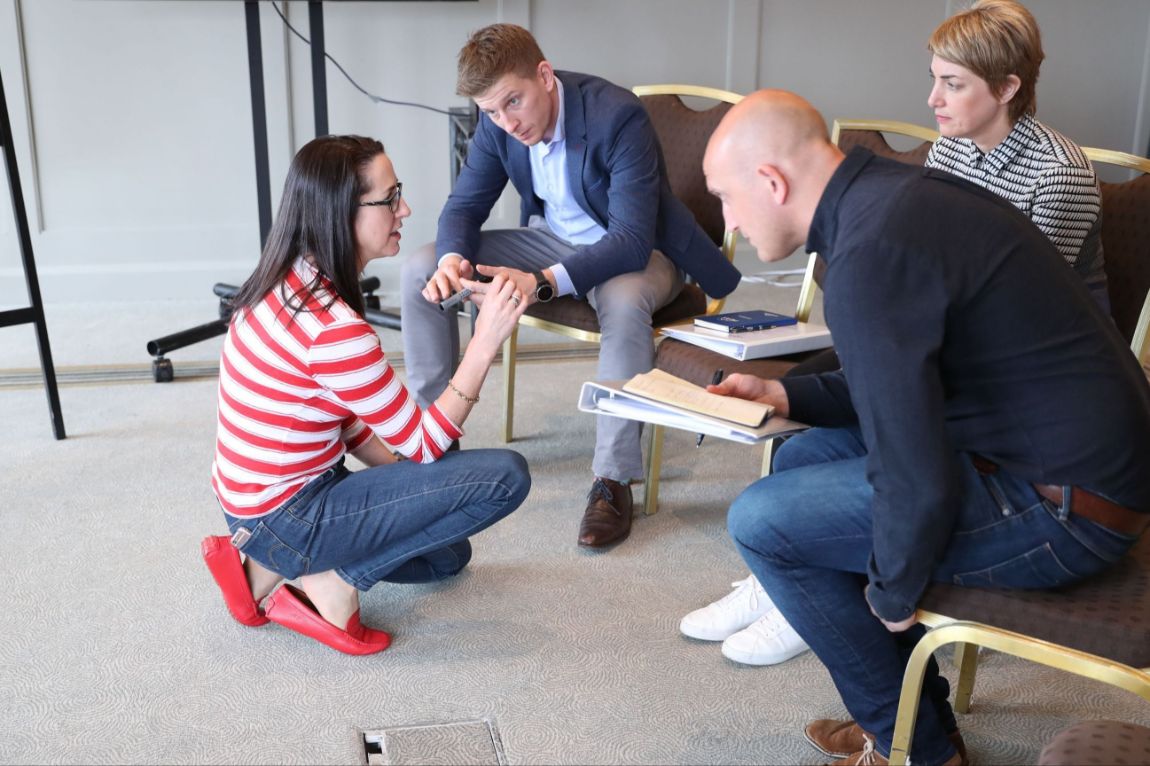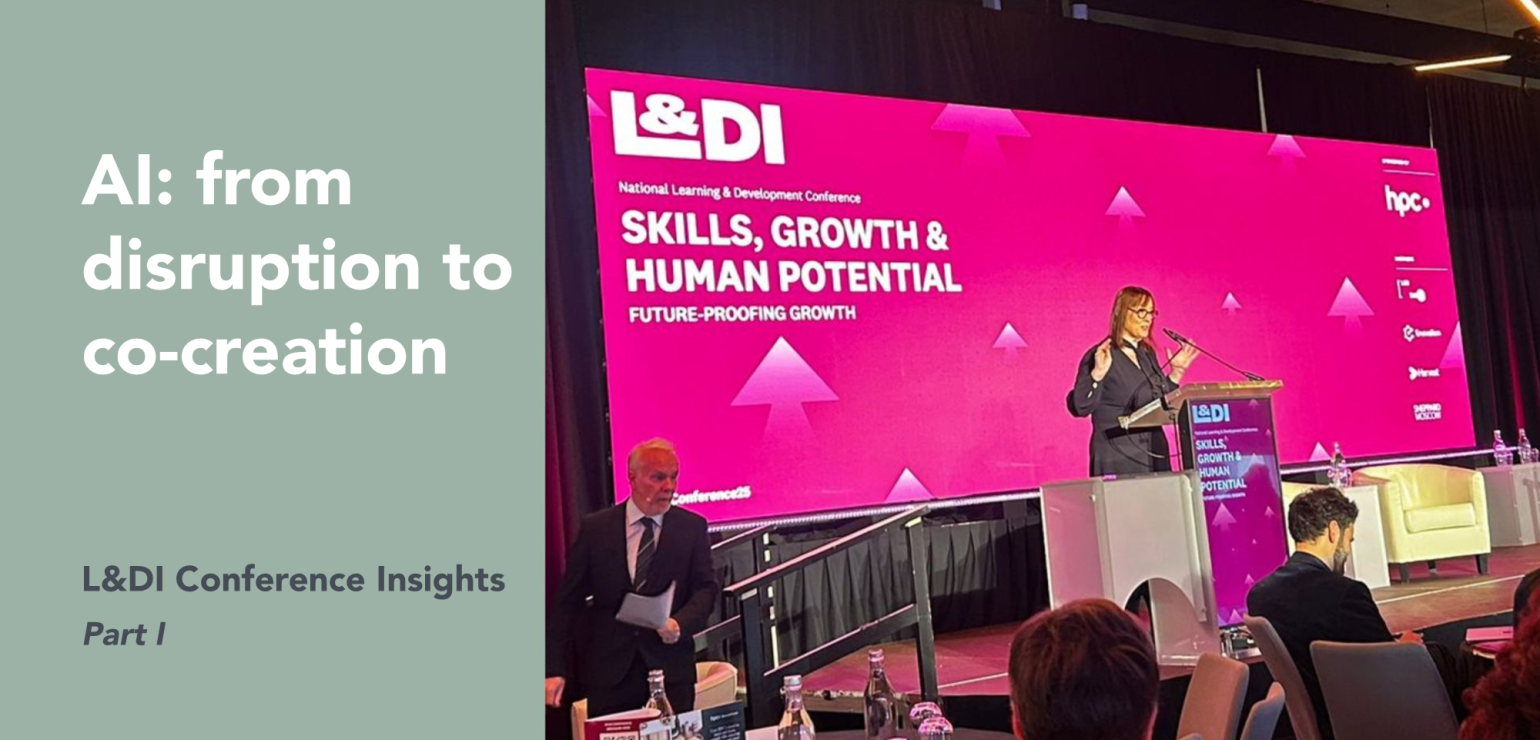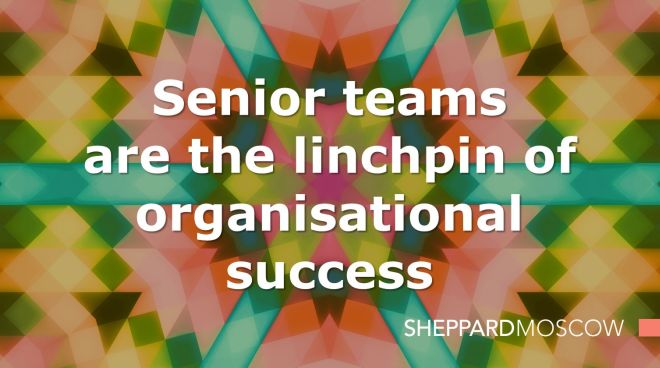Mastery in Senior Team Development

What impact can effective leadership have on organisational change?
At Sheppard Moscow, we have been helping our clients to develop team effectiveness at senior level for nearly 50 years. A client told me recently that Sheppard Moscow has the last word on team development, but I’m more inclined to believe that our mastery is a journey, rather than a destination. This article is a short reflection on what we’ve been learning as we deepen and extend our practice in the area of developing senior team effectiveness. We value the opportunity to share and build learning with fellow practitioners and with our clients.
As Organisation Development (OD) consultants, our team coaching practice is deeply connected to business strategy and context. We have always helped build teams which are high functioning and fit for purpose – with real empathy and trust, unafraid of healthy conflict, fully committed, mutually accountable, and focused on collective results (to put it in Patrick Lencioni’s terms). We have worked with Professor Peter Hawkins to learn more and to further strengthen the systemic elements of our team coaching practice. We are now certified ‘Systemic Team Coaches’, and this has enhanced our ability to focus on the effectiveness of the team as a whole in relation to the business purpose it serves.
Why is it important to ensure effective change management?
What the systemic approach exposes is that working on the team dynamic without a direct line of sight to the team’s purpose, key business outcomes and stakeholder needs, in the context of the business ecosystem in which they’re operating in, can be like a rugby coach drilling a soccer team in cricket tactics! So, to our clients and fellow practitioners we recommend systemic team coaching in general.
That said, while the model and approach used to developing a team is important, the need for really masterful facilitation and coaching skills must not be underestimated. Our clients tell us that what they value is that we have a particular blend of deeply relational focus on the one hand and, on the other, an ability to understand and pragmatically work with the business issues. Transforming a team’s capability requires this level of facilitation/coaching mastery and this combination of relationship and business orientation.
Is trust an important capability for managing organisational change?
We have always known, and yet we continue to learn, the value of building human intimacy, trust and mutual commitment within a team – even in the most seemingly unpromising situations. By doing this, we enable team members to productively relate, work, disagree, create and figure out together what the team needs to be, and how to act in service of their stakeholders, and their purpose. Amy Edmondson in her book on ‘Teaming’ talks about discerning the difference between task conflict and relationship conflict, and we help clients to build the dialogue skills to explore the nature and source of conflict – and to make it psychologically safe to be able to disagree and challenge profoundly - in transformatively productive ways.
How does Sheppard Moscow assess the capabilities necessary for leading change?
While our diagnostic work is solid and thorough, we are not particularly reliant on assessment tools per se – though we use them when it seems necessary and useful. Rather, because we work at psychological depth, our forte is in interviewing, and then helping our clients work live to have the conversations they need to have and to take the actions they need to take, all with a clear line of sight to the business need. Don't underestimate the power of an insightful question, and its ability to catalyze leaders’ system awareness.
My overarching reflection is that achieving true transformation in senior team effectiveness is about enabling teams to make real business breakthroughs in complex, challenging, and often conflict-laden situations – in global matrices, in joint ventures, in leadership teams that span silos, in messy and complex human or technological situations. It is not for the faint-hearted, but it is enormously satisfying! With a site leader in the pharma industry, we were reflecting on the profound difference he now sees in his team’s ability to coach one another and to shape one another’s contribution so that as team leader he can begin to step back from managing and step up to leading. I know that the business results will follow in time, but just seeing his sense of liberation and possibility was rewarding enough in the meantime.

 Andrea Cusack
Andrea Cusack 
 Aoife Keane
Aoife Keane 
